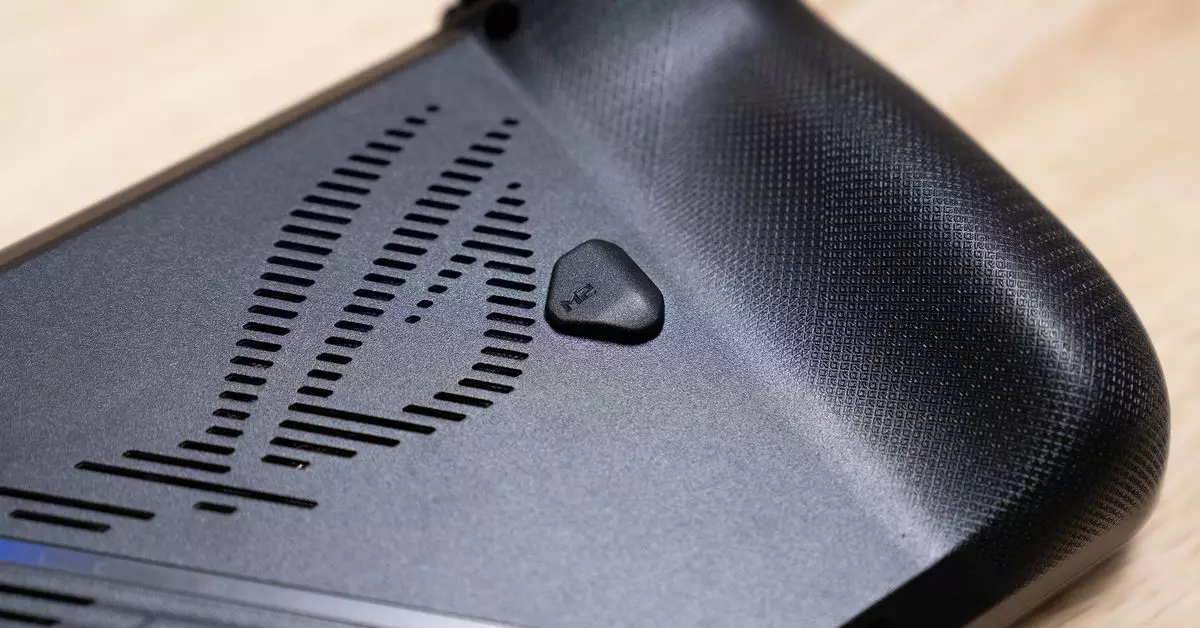Valve, a prominent player in the gaming industry, has been at the forefront of innovation when it comes to gaming technology. Their initial idea of having every PC maker create their own “Steam Machine” seemed like a distant dream at one point. However, after a decade of evolution, Valve has introduced its own internally developed gaming handheld called the Steam Deck. Despite this, the company has not abandoned its original vision. Valve intends to allow other companies to utilize SteamOS, their Linux-based operating system. This move includes extending support to rival handheld devices such as the Asus ROG Ally, as confirmed by Valve designer Lawrence Yang in a recent interview.
SteamOS Support
Valve’s latest SteamOS release notes revealed an interesting development – the addition of support for extra ROG Ally keys. This announcement took many by surprise as the extent of Valve’s support for rival devices was unknown. While some speculated that this support was limited to the Steam desktop client on Windows, Valve clarified that it was indeed related to third-party device support for SteamOS. Lawrence Yang emphasized that the team is actively working on integrating support for additional handhelds on SteamOS, including the ROG Ally and possibly other similar devices in the future.
Challenges and Progress
Despite Valve’s commitment to supporting rival handhelds, challenges remain. Companies like Asus, the manufacturer of the ROG Ally, have cited various reasons for shipping their devices with Windows instead of SteamOS. One major factor is Microsoft’s dedicated validation teams that ensure Windows compatibility across a wide range of hardware configurations. While Valve continues to make steady progress in developing SteamOS for handheld devices, it is not yet ready for mass consumption. Similarly, the general release of SteamOS 3 for non-handheld PCs is still in the works, with Valve making significant strides but not reaching completion just yet.
In addition to supporting rival handhelds, Valve has also promised the ability to turn Steam Decks into dual-booting Windows machines. This feature would allow users to switch between SteamOS and Windows at their convenience. However, the timeline for dual-boot support remains uncertain. While Valve is preparing the necessary Windows drivers for Steam Deck OLED, the actual implementation of dual-boot functionality is still pending due to other priorities taking precedence.
Valve’s efforts to expand its gaming ecosystem beyond its proprietary hardware are not unique in the industry. Other players like Universal Blue have already demonstrated compatibility with devices like the Asus ROG Ally X before its official release. This trend indicates a broader shift towards interoperability and adaptability in the gaming market, where operating systems like Bazzite are paving the way for increased support for a variety of gaming devices.
Valve’s decision to support rival handhelds like the Asus ROG Ally signifies a new era of collaboration and innovation in the gaming industry. By extending the reach of SteamOS to other devices, Valve is not only expanding its user base but also fostering a more inclusive gaming environment. As the landscape of gaming continues to evolve, it will be interesting to see how competitors and partners respond to Valve’s strategic moves towards greater compatibility and accessibility in gaming technology.


Leave a Reply
You must be logged in to post a comment.